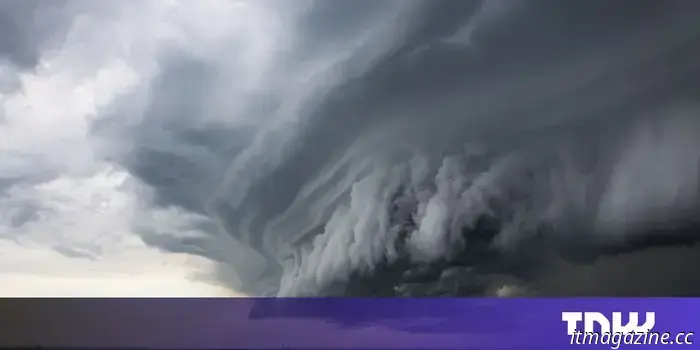
A Swiss startup claims that its AI-driven weather forecasting system outperforms those of Microsoft and Google.
Swiss startup Jua has introduced an AI weather model that it claims surpasses the leading systems from major technology companies, potentially establishing it as the most precise forecaster globally.
Jua asserts that its model, known as EPT-2, is both faster and more accurate than Microsoft’s Aurora and Google DeepMind’s Graphcast. In independent, peer-reviewed studies, both of these models demonstrated greater accuracy than the European Centre for Medium-Range Weather Forecasts (ECMWF)’s ENS forecast, which is widely considered the top in the field.
To support its ambitious claims, Jua has released a new report today that compares EPT-2 with premier models, including Aurora and two of the best from ECMWF: ENS and IFS HRES.
The findings indicate that EPT-2 achieved the highest accuracy in forecasts overall. It outperformed Aurora on critical factors such as 10-meter wind speed and 2-meter air temperature over a 10-day timeline, delivered forecasts 25% faster, and recorded the lowest error rates among all models evaluated. Jua states that it accomplished this using 75% less computing power than Aurora, the second most efficient model tested.
According to Jua, the research will be available on the open-access platform arXiv next week.
DeepMind’s Graphcast model was not included in the study, but Marvin Gabler, Jua’s CEO and co-founder, is optimistic about EPT-2's ability to outperform the competition.
“We have respect for players like Microsoft Aurora, GraphCast, and Tomorrow.io, but they tend to be either too slow, too narrow in focus, or still dependent on outdated infrastructure,” stated Gabler.
In recent years, AI-driven weather forecasting has gained traction due to the need for more accurate and cost-effective climate predictions.
Traditional weather forecasting models, such as those developed by ECMWF or NOAA, rely on sophisticated physics equations operated on billion-dollar supercomputers. In contrast, AI models bypass these equations, identifying patterns in extensive datasets, which could enable rapid and accurate forecasts using significantly less expensive and lower-energy machinery.
Gabler notes that Jua has advanced beyond previous AI-based forecasters. “While others are integrating AI into old systems, we’ve created a native physics simulation that comprehends the actual behavior of Earth’s atmosphere,” he remarked.
Jua launched its first global AI weather model three years ago and has since secured a total of $27 million in funding from investors, including 468 Capital, Future Energy Ventures, and Promus Ventures.
A Swiss startup claims that its AI-driven weather forecasting system outperforms those of Microsoft and Google.
Switzerland's Jua claims that its new AI weather model outperforms the major tech companies, potentially making it the most precise forecaster in the world.

